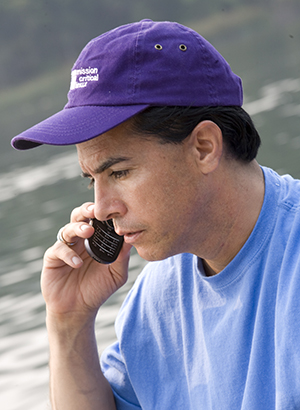When You’re HIV-Positive: What to Say
When You're HIV-Positive: What to Say
Finding out that you are HIV-positive can be traumatic and very stressful. But the diagnosis is not as terrifying as it used to be, thanks to new and better medicines to treat it. Besides coping with your own reaction, you will need to decide who to tell and how you'll tell them about your HIV status. In some cases, it will be better for you to share the information. In other cases, you may be required to tell. And sometimes it may be best to keep it to yourself. These are big decisions.
People you need to tell
In many states you are required to tell any current, past, and future sexual partners and anyone you may have shared needles with about your HIV status. You may also be required to tell medical caregivers. Telling healthcare providers and dentists is a good idea in any case, because it means better medical care for you.
It's best to tell a current or future sexual partner about your HIV status in person. But you may be too uncomfortable contacting all the people you shared sex or needles with in the past. If this is the case, your local health department can help you. The agency can release this information while keeping your identity private. Check with your local health department about your state's legal requirements.
Telling friends and loved ones
Not all friends and loved ones need to know. The main benefit for you is their understanding and support. So you need to think about which trusted friends and family members are most likely to offer the support you need.
Here are tips that can help you in this process:
Be prepared emotionally. Before you disclose your HIV status, get some support and feedback from a trusted friend or counselor. Make sure you are ready to accept all the possible reactions to the news.
Be prepared with information. Loved ones may have lots of questions, so try to be prepared to answer them. Expect that people you tell may need time to adjust. They may also need support themselves, so be ready to offer them resources.
Pick the right place and time. Make sure you share this information when you have enough time and privacy. Once you are ready, don't put it off. That only makes talking about it more difficult.
Telling your employer
If you are applying for a new job, the only thing your potential employer has the right to ask is if you are healthy enough to do the job. If you are already employed, you do not need to tell anyone at work about your HIV status. But there are some advantages to it that you might consider, especially if HIV illness or treatment interferes with work.
Here's what you need to know:
You are protected under the Americans with Disabilities Act. As long as you can do your job, your employer must make reasonable accommodations to help you.
Get a letter from your healthcare provider explaining what kind of help you need. This could be extra rest. Or it may be a change in your schedule or work assignments.
Tell your employer you want to keep working. Let him or her know if you want to keep your HIV status private.
If in doubt about your legal rights, talk to a benefits counselor or a legal expert.
If you are having a hard time telling anyone, contact Project Inform. This is an organization for people living with HIV/AIDS. They suggest calling an HIV hotline and practicing by telling the trained and supportive people there. You can reach them at 800-822-7422 or online at Project Inform.
Telling people about your HIV status can be very difficult. But once you have told the people who need to know, it can be a great relief. You won't need to hide or be afraid any longer. And the relationships that really count should get closer and stronger.
Updated:
February 13, 2018
Reviewed By:
Images Reviewed by Staywell medical art team.,Lentnek, Arnold, MD,Sather, Rita, RN
